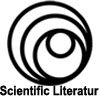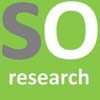THE IMPLEMENTATION OF INSTRUCTIONAL LEADERSHIP OF HEADMASTER AT MAN 1 PALU
Abstract
The objectives of this research are: 1) To discover the description of the instructional leadership of Headmaster at Madrasah Aliyah Negeri 1 Palu; 2) To discover the strategy for implementing instructional leadership of headmaster at Madrasah Aliyah Negeri 1 Palu. The type of this research is descriptive-qualitative with a pedagogical, sociological and philosophical approaches. The data collection techniques are observation, interviews and documentation. The results of research showed that: 1) The application of instructional leadership is reflected on the leadership of headmaster which is oriented around improving the quality of education in Madrasah Aliyah Negeri 1 Palu; 2) The strategy for implementing instructional leadership of headmaster is by maximizing supervision and training at the level of school, and involving the teachers and educational staff in workshops or seminars to improve the quality of education in Madrasah Aliyah Negeri 1 Palu. The implications: 1) Headmaster needs to increase creativity in bringing up new ideas in directing and supervsing teachers and educational staff to improve the quality of educational services at Madrasah Aliyah Negeri 1 Palu; 2) Headmaster needs to implement strategies of supervision, discussion, training for teachers and educational staff, and involving parents of students in making policies relating to the improvement of quality of the learning process at Madrasah Aliyah Negeri 1 Palu.
Downloads
References
Andang, Manajemen dan Kepemimpinan Kepala Sekolah (Yogyakarta:Ar Ruzz Media, 2014).
Blase, J., and Blase, J. “Effective Instructional Leadership : Teachers Perspectives on How Principals Promote Teaching and Learning in Schools”, Journal of Educational Administration 38, no. 2 (2000).
Bush, T and Glover, D. “School leadership models: What do we know?. School Leadership & Management 34 no. 5 (2014): 553-571.
Darling-Hammond, L., Flook, L., Cook-Harvey, C., Barron, B., & Osher, D. “Implications for educational practice of the science of learning and development.” Applied Developmental Science 24 no. 2 (2020).
Fatah, Syukur. Manjemen Pendidikan berbasis pada Madrasah (Semarang: Pustaka Rizki Putra, 2011).
Hamidi, Metode Penelitian Kualitatif, Aplikasi Praktis Pembuatan Proposal dan Laporan Penelitian (Malang: UMM Press, 2004).
Ingersoll, R. M., & Strong, M. “The impact of induction and mentoring programs for beginning teachers: A critical review of the research”. Review of Educational Research 81, no. 2 (2011).
Innova Riana Yanti Sinambela dkk,” Gaya Kepemimpinan Instruksional Kepala Sekolah pada Era Pandemi Covid 19”, Jurnal Inovasi Penelitian 2, no.12 (2022): 4169
J.M Burn. Leadership (New York: Happer, 1987).
Johnson, D. W., & Johnson, R. T, “Making Cooperative Learning Work.” Theory into Practice 38 no. 2 (1999).
Marzano, R. J dan Kendall, J. S, The New Taxonomy of Educational Objectives (Corwin Press, 2007)
Masmur M, “Pengaruh Kompetensi Profesional Guru dan Motivasi Belajar terhadap Hasil Belajar Siswa Pada Mata Pelajaran Pai Di Sd Nederi No. 12 Pulau Pamalikang Desa Sabaru Kecamatan Liukang Kalmas Kabupaten Pangkajene Dan Kepulauan”, Jurnal Pendidikan Kreatif 1, no. 1 (2020).
Mulyasa, E. Menjadi Kepala Sekolah Profesional (Bandung: PT Remaja Rosdakarya, 2013).
Munir, Abdullah. Menjadi Kepala Sekolah Efektif (Jogjakarta: Ar ruzz Media, 2008).
Soekamto, Soerjono. Sosiologi Suatu Pengantar (Raja Grafindo Persada: Jakarta, 2003).
Sugiyono. Memahami Penelitian Kualitatif. (Cet. III, Bandung: Alvabeta, 2005).
Sumidjo, Wahjo. Kepemimpinan Kepala Sekolah; Tinjauan Teoritik dan Permasalahannya. (Jakarta: Raja Grafindo Persada, 2003).
Supardi, Sekolah Efektif; Konsep Dasar dan Praktiknya (Jakarta: Raja Grafindo Persada, 2013).
Syarwan Ahmad, “Problematika Kurikulum 2013 Dan Kepemimpinan Instruksional Kepala Sekolah”, Jurnal Pencerahan 8, no. 2 (2014).
UU RI. No. 20 tahun 2003. Sistem Pendidikan Nasional dan Penjelasannya, (Bandung: PT. Citra Umbara, 2003.
Wong, H. K., & Wong, R. T., How to be an effective teacher: The first days of school. (Harry K. Wong Publications, 2005).
Copyright (c) 2023 Paedagogia: Jurnal Pendidikan

This work is licensed under a Creative Commons Attribution-NonCommercial 4.0 International License.
The author agrees to the following conditions upon publishing a work to Paedagogia: Jurnal Pendidikan:
1. Each article is licensed under a Creative Commons Attribution-NonCommercial 4.0 International License. The author(s) recognizes that Paedagogia: Jurnal Pendidikan has the right to be the first to publish under a Creative Commons Attribution-NonCommercial 4.0 International License. This license permits the copying and redistribution of this material in any form or format, as well as the composition, modification, and creation of derivative works of this material for any purpose, but Non commercial, as long as the author is credited with the original work.
2. Authors may submit articles separately or arrange for non-exclusive distribution of manuscripts previously published in this journal in other forms (e.g., to the author's institutional repository, publication in books, etc. ), provided that the manuscript is acknowledged as having been published first in the Paedagogia: Jurnal Pendidikan.
3. A copyright submission agreement must attach each approved manuscript prior to publication. You may obtain the form for the copyright submission agreement here (INA) (EN).






























 This work is licensed under a
This work is licensed under a 